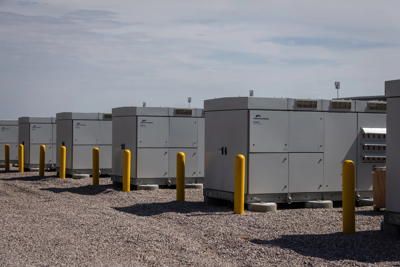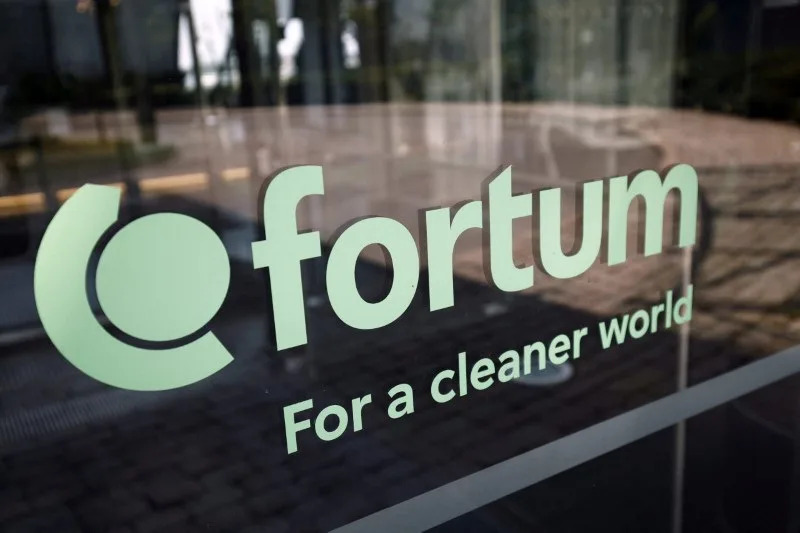https://www.wyomingnews.com/opinion/guest_column/drake-no-amount-of-money-is-worth-turning-wyoming-into-a-nuclear-waste-dump/article_0b090a02-5b2f-11ef-8505-5b451b00d6e9.html
Drake: No amount of money is worth turning Wyoming into a nuclear waste dump

Kerry Drake
Wyoming columnist
Wyoming really needs to clone Jeff Steinborn, a New Mexico state lawmaker, or elect someone just like him.
Last year, Steinborn led a successful effort to ban the transportation and storage of high-level nuclear waste in his home state.
Steinborn didn’t buy the claims of a private company that planned to build a temporary storage facility for spent nuclear fuel rods near Carlsbad, New Mexico. Backers had visions of billions of dollars dancing in their heads.
It’s the same dream some Wyoming legislators have embraced — fortunately without success — since the early 1990s. Now the idea has reared its ugly head again.
Rep. Donald Burkhart Jr., R-Rawlins, said he will bring a draft bill to October’s Joint Minerals, Business and Economic Development Committee to allow a private nuclear waste dump (my description, not his) to be built in Wyoming.
Burkhart, who co-chairs the panel, said the state could reap more than $4 billion a year from nuclear waste storage “just to let us keep it here in Wyoming.” What a sweet deal!
Except the prospect of that much revenue may be a tad overstated. It could be about $3.974 billion less than Burkhart suggested, so the trial balloon he floated won’t get off the ground.
Wyoming legislators start touting nuclear waste storage whenever the state has a budget crunch.
I naively thought whether to establish a temporary “Monitored Retrievable Storage,” as they used to be called, had long been settled in Wyoming.
In 1992, then-Gov. Mike Sullivan rejected a proposed Fremont County project. A University of Wyoming survey in 1994 found 80% of respondents opposed a high-level nuclear waste facility.
“It makes no sense to me as governor to put this state or its citizens through the agonizing and divisive study and decision-making process of further evaluating the risks of an MRS facility,” Sullivan wrote in a letter to Fremont County commissioners.
In 2019, the Legislative Management Council narrowly decided — in a secret email vote — to authorize a Spent Fuel Rods Subcommittee to study the issue. Sen. Jim Anderson, R-Casper, said it could be an annual $1 billion bonanza.
The subcommittee’s enthusiasm for the idea sank when it learned the feds were only going to pony up $10 million a year. That figure has since increased, but not by much.
The Department of Energy announced in 2022 that it would make $16 million available to communities interested in learning more about “consent-based siting management of spent nuclear fuel.” Last year, the pot was sweetened to $26 million.
Steinborn said there was no financial incentive at all for an interim site in his state. “New Mexico has not been offered anything in the deal,” he said. “And even if we had, I don’t think any amount of money would convince me that it’s the right thing.”
Steinborn said the nation needs a permanent solution for storing spent nuclear fuel. “But New Mexico can’t just be the convenient sacrifice zone for the country’s contamination,” he said.
And neither should Wyoming. Yes, the U.S. Department of Energy and Microsoft billionaire Bill Gates are backing a $4 billion Natrium nuclear power plant near Kemmerer. But Wyoming has no obligation to take other states’ nuclear trash.
It’s increasingly unlikely a permanent site will ever be built. Yucca Mountain, Nevada, was chosen by Congress in 1987, but it’s been tangled up in a web of political and scientific controversies.
There is a significant legal obstacle to siting a “temporary” waste site in Wyoming or anywhere else. Congress would have to amend the Nuclear Waste Policy Act, which prohibits designating an interim storage site without a viable plan to establish a permanent deep-mined geologic repository — like the Yucca Mountain project, but one that could actually be approved and built.
Victor Gilinsky, former consultant for the state of Nevada, investigated the Yucca Mountain project. He offered this observation: “I don’t think any state would ever trust the Energy Department to build and operate a nuclear waste repository.”
Why in the world do Wyoming legislators who brag about their distrust of federal government see nothing wrong with a federal agency managing nuclear waste here? They’ve turned down an estimated $1.4 billion for Medicaid expansion since 2013, but they’re willing to take peanuts from the federal government to be a nuclear dumping ground.
Jill Morrison, a retired landowner advocate who has lobbied against similar proposals since the 1990s, told WyoFile that lawmakers are trying to sneak in this one “and ram it through.”
“It threatens public safety, and it’s really going to wreck Wyoming’s national reputation and image as a destination for tourism and recreation — a beautiful place to visit or live,” Morrison said.
I’ve read suggestions on the internet that Wyoming could make a nuclear waste facility a tourist attraction.
I reckon something that exciting could at least draw half of the 4.5 million Yellowstone visitors we get each year. Charge ‘em $1,088 each, the average price of a Taylor Swift concert ticket. That would bring in a cool $2.4 billion.
That’s not as much as Burkhart said we’d reap, but it’s about as realistic.

































